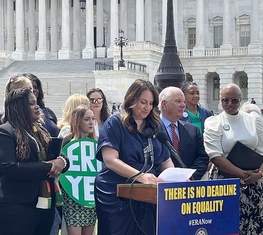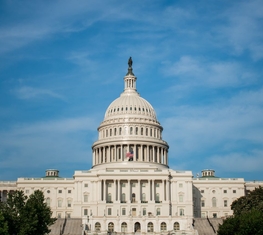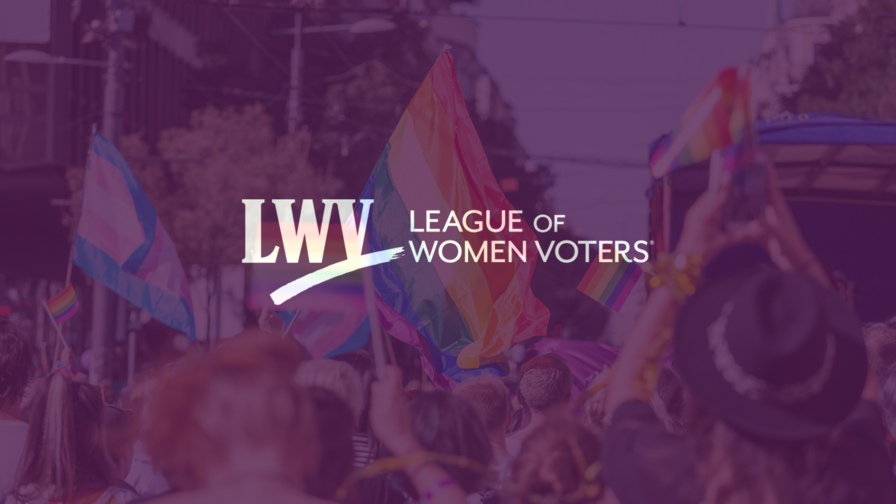Anti-LGBTQIA+ State Legislative Trends
Content warning: this blog contains discussions of suicide, sexual assault, physical violence
This year we have seen an unprecedented number of legislative attacks on the rights of lesbian, gay, bisexual, transgender, queer, intersex, asexual, and other sexual and gender minority (LGBTQIA+) individuals, particularly transgender (trans) and non-binary youth. These attacks, accompanied and “justified” by false and pathologizing narratives about LGBTQIA+ people, have devastating consequences for the community’s physical and psychological well-being.
A Record-Breaking Year
As of the end of May 2023, state legislatures had introduced more than 520 anti-LGBTQIA+ bills — more than in each of the previous five years — 74 of which had passed into law. This contrasts with 2022, in which state legislatures introduced 315 anti-LGBTQIA+ bills, 29 of which passed into law. More than 220 of this year’s bills target trans and non-binary people, and many target youth specifically, with a focus on health care, education, and public accommodations, as well as a few attempts to restrict marriage equality and drag performances.
While this blog will focus on state-level legislation, it’s also worth noting that in June 2023, the LGBTQIA+ community experienced a further undermining of their equal rights with the US Supreme Court’s ruling in 303 Creative LLC v. Elenis. In this decision, the Court ruled that a Colorado website designer may refuse to create wedding websites for same-sex couples because requiring her to do so would violate her right to free expression under the First Amendment.
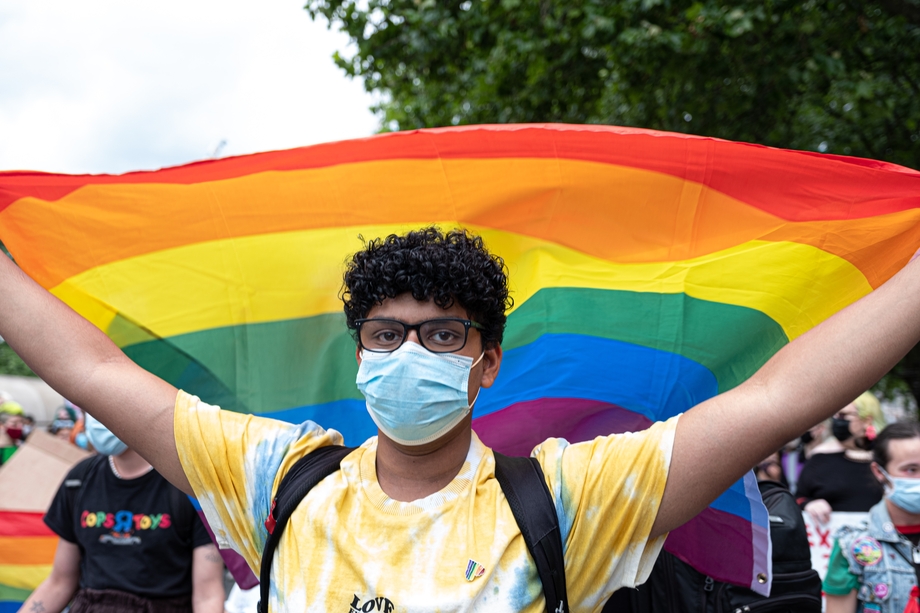
Health Care: Gender-Affirming Care Bans
Gender-affirming care includes an array of medically necessary, evidence-based medical, psychological, behavioral, and social services that affirm a person’s gender identity. This care has been endorsed by at least 30 major medical associations, including the American Academy of Pediatrics and the American Medical Association.
Gender-affirming care is associated with reduced odds of depression and suicidality in transgender and non-binary youth. This is vitally important, as mental health concerns pose a major threat to the physical and psychological well-being of trans and non-binary individuals. In 2023, more than half of trans and non-binary youth across the US seriously considered suicide, in part because of stigmatization and mistreatment. A recent study found that receipt of gender-affirming care was associated with 60% lower odds of depression and more than 70% lower odds of self-harm or suicidal thoughts in the first year of care.
Despite this, in 2023, at least 36 state legislatures have introduced more than 125 bills to prevent trans youth from accessing gender-affirming care, 16 of which have gone into law.
In addition to banning care, some of these bills establish criminal penalties for parents, guardians, and/or medical providers, including threatening parents who provide gender-affirming care with child abuse investigations. Others also target funding for hospitals that provide related care.
Education: Curriculum, Books, and School Sports Bans
Numerous state bills, at least one of which has become law, have been introduced to ban classroom discussions about gender identity and/or sexual orientation. Critics of this type of legislation are concerned that its vague language could be used to target educators for using books with LGBTQIA+ characters or for speaking or answering questions about different kinds of identities or family structures. This may result in civil penalties for schools and suspensions, terminations, and revocations of teaching certificates for educators. Other proposed bills have similar provisions to restrict materials permitted in schools and public libraries.
Additional state bills would allow educators and students to deliberately use the wrong pronouns or names when referring to trans students or require teachers to disclose LGBTQIA+ students’ identities to their parents. Sharing the identity of LGBTQIA+ students with their families can threaten their housing stability or physical safety. Up to 40% of houseless youth are LGBTQIA+, many of whom ended up without stable housing because they were kicked out or mistreated by their families due to their gender or sexual identity.
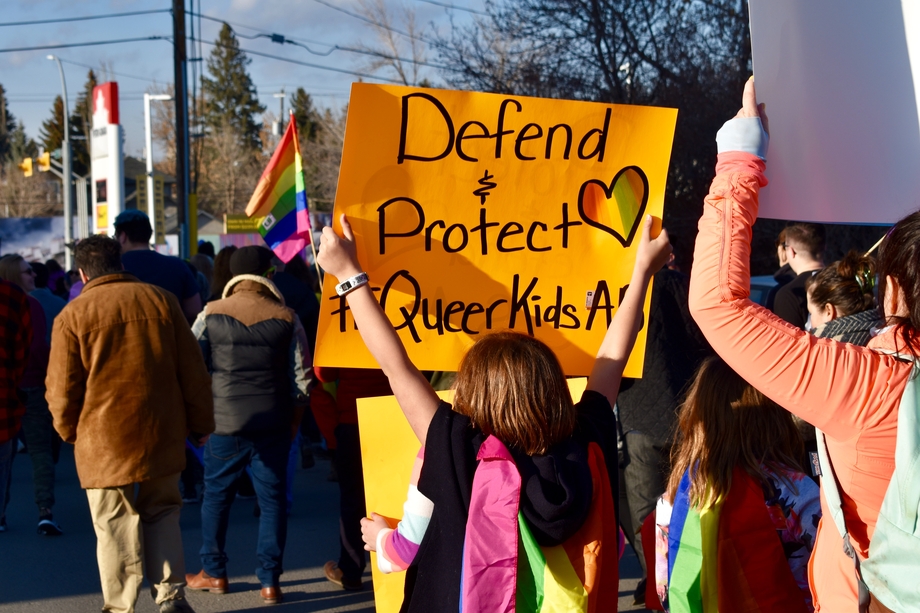
Trans and non-binary youth who find their school to be gender-affirming have lower rates of attempting suicide. Despite the significant benefit of creating an inclusive space for LGBTQIA+ students in schools, in 2023, state legislatures have passed 13 laws censoring school curriculum including books, and seven laws allowing or requiring the misgendering of students. They have also introduced more than 45 bills to ban trans youth from participating in school sports. The League has filed an amicus brief in support of plaintiffs in Hecox v. Little, which challenges Idaho’s law that targets trans, non-binary, and intersex students with the nation’s harshest requirements for participation in women’s sports.
Public Accommodations: Defining Sex and Bathroom Bans
Multiple states have introduced bills to legally define biological sex as “male” and “female” based on characteristics including chromosomes and reproductive organs. Some of these bills also define “woman,” “man,” “girl,” and “boy” in terms of the aforementioned narrow, biological definitions. These definitions do not acknowledge the nearly one in 100 Americans who are intersex, and would effectively prohibit people from using public accommodations, such as bathrooms and locker rooms, that align with their gender identity.
Trans and gender-nonbinary teens face greater risk of sexual assault in schools that prevent them from using bathrooms or locker rooms consistent with their gender identity. Despite the threat it poses to trans and gender-diverse individuals, in 2023, state legislatures have introduced more than 30 bathroom bans.
Marriage Equality Restrictions
At least two states have proposed bills to ban same-sex marriage or permit state government employees to deny marriage licenses to same-sex couples based on their personal beliefs.
Drag Performance Restrictions
Drag is a form of entertainment in which people dress up and perform, often including men performing stylized femininity and women performing stylized masculinity. It is a fundamental part of LGBTQIA+ culture.
Multiple states have introduced bills that would ban drag performances in public places, ban minors from attending drag performances, or redefine venues that host drag events as sexually oriented businesses, subjecting them to harsher restrictions than other businesses. These bills establish civil and sometimes criminal penalties.
Two such bills have passed into law in Montana and Tennessee, the latter of which has been blocked by a federal judge.
Harmful Impacts
False narratives have been used to “justify” laws targeting and attacking LGBTQIA+ people. This rhetoric has harmful consequences for the physical and psychological well-being of community members.
The politicization of LGBTQIA+ people’s rights has been justified under the guise of personal or religious beliefs and parental rights, as well as the narrative that LGBTQIA+ people are “grooming” children for abuse or to influence their gender identity and sexuality. This false rhetoric appears to have driven many attacks targeting LGBTQIA+ people over the past year. Between June 2022 and April 2023, there were more than 350 recorded anti-LGBTQIA+ incidents of harassment, vandalism, and assault, more than half of which made explicit reference to “grooming” or “pedophilia.”
In the US, LGBTQIA+ youth are already more than four times as likely to attempt suicide compared to their peers. According to a 2023 survey, nearly 70% of LGBTQIA+ youth, including about 75% of trans and non-binary youth, have anxiety symptoms, and nearly 55% of LGBTQIA+ youth, including more than 60% of trans and non-binary youth, have depression symptoms. In the past year, more than 40% of LGBTQIA+ youth seriously considered attempting, and 14% attempted, suicide. Much of the aforementioned anti-LGBTQIA+ legislation could cause a rise in mental health challenges and suicidal thoughts and behaviors. Further, according to a recent poll, 86% of transgender and nonbinary youth say that debates about and laws restricting the rights of LGBTQIA+ youth have negatively affected their mental health.
What You Can Do
The League supports equal rights for all under state and federal law regardless of identity, including gender and sexual orientation. You can:
-
Examine sources to ensure they are evidence-based. For example, for information on gender-affirming care, be sure to consult reputable medical associations such as the American Academy of Pediatrics. Beware of organizations like the American College of Pediatricians, a designated hate group according to the Southern Poverty Law Center.
Emergency Resources
Crisis Counseling/Suicide Prevention
-
National Suicide Prevention Lifeline’s 24/7 crisis counseling
-
The Trevor Project’s 24/7 crisis counseling for LGBTQ+ youth
-
Trans Lifeline’s peer support hotline for trans people
-
It Gets Better Project’s additional LGBTQ+ youth resources
The Latest from the League
WASHINGTON — Today, League of Women Voters of the United States President Dr. Deborah Turner issued the following statement after the Supreme Court held that a Colorado website designer may discriminate against same-sex couples in her wedding website business based upon her right to free expression under the First Amendment.
Gun violence has a relatively more devastating impact on certain groups of people, including the LGBTQIA+ community. The disproportionate impact of gun violence on the LGBTQIA+ community makes gun safety a vital protection for community members.
The League of Women Voters is dedicated to ensuring equal rights and equal opportunity for all. This commitment led to LWVUS joining the legal challenge to Idaho’s Fairness in Women’s Sports Act which prohibits transgender women and girls, intersex persons, and any non-binary person from participating in sports.
Sign Up For Email
Keep up with the League. Receive emails to your inbox!
Donate to support our work
to empower voters and defend democracy.

